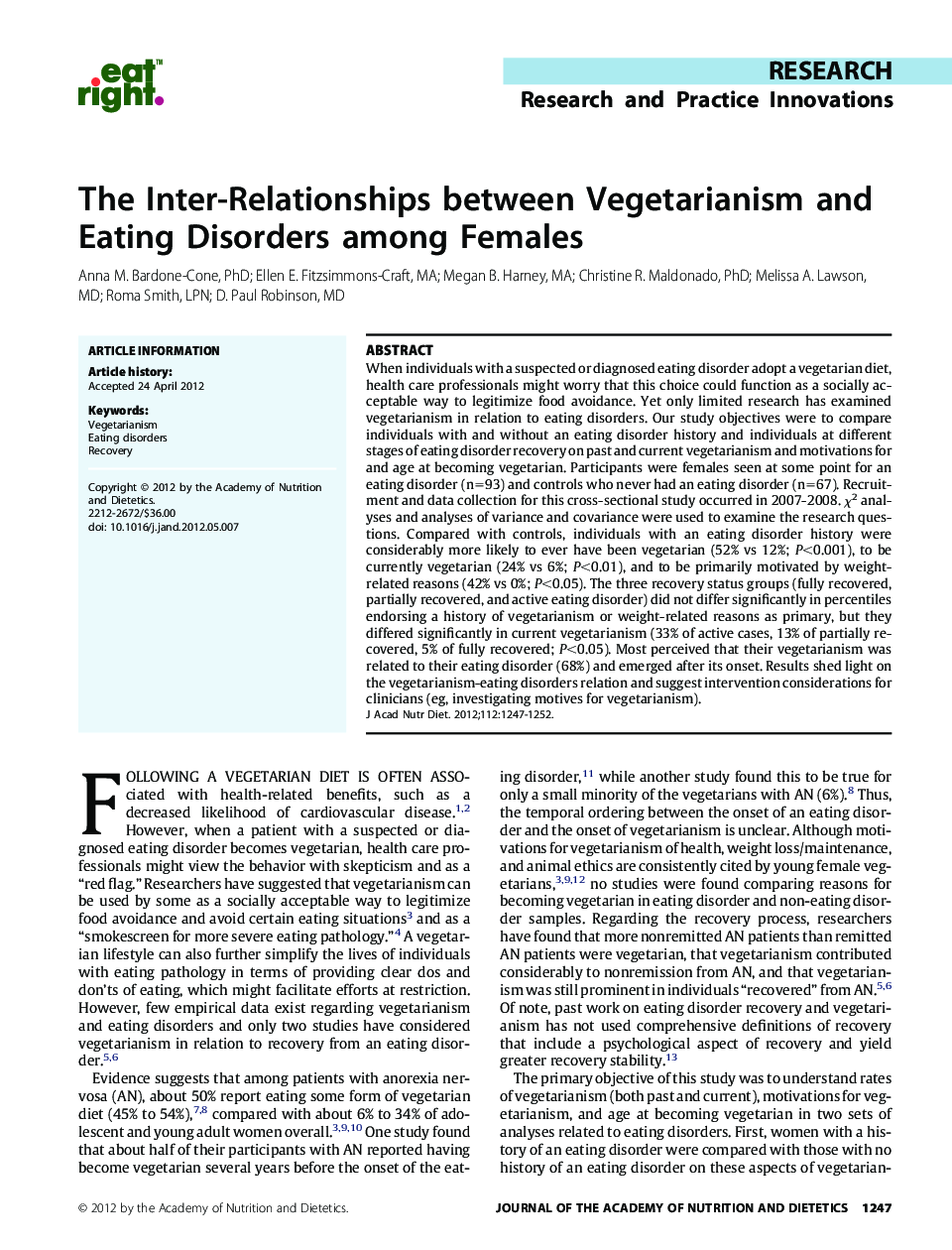| Article ID | Journal | Published Year | Pages | File Type |
|---|---|---|---|---|
| 2657037 | Journal of the Academy of Nutrition and Dietetics | 2012 | 6 Pages |
When individuals with a suspected or diagnosed eating disorder adopt a vegetarian diet, health care professionals might worry that this choice could function as a socially acceptable way to legitimize food avoidance. Yet only limited research has examined vegetarianism in relation to eating disorders. Our study objectives were to compare individuals with and without an eating disorder history and individuals at different stages of eating disorder recovery on past and current vegetarianism and motivations for and age at becoming vegetarian. Participants were females seen at some point for an eating disorder (n=93) and controls who never had an eating disorder (n=67). Recruitment and data collection for this cross-sectional study occurred in 2007-2008. χ2 analyses and analyses of variance and covariance were used to examine the research questions. Compared with controls, individuals with an eating disorder history were considerably more likely to ever have been vegetarian (52% vs 12%; P<0.001), to be currently vegetarian (24% vs 6%; P<0.01), and to be primarily motivated by weight-related reasons (42% vs 0%; P<0.05). The three recovery status groups (fully recovered, partially recovered, and active eating disorder) did not differ significantly in percentiles endorsing a history of vegetarianism or weight-related reasons as primary, but they differed significantly in current vegetarianism (33% of active cases, 13% of partially recovered, 5% of fully recovered; P<0.05). Most perceived that their vegetarianism was related to their eating disorder (68%) and emerged after its onset. Results shed light on the vegetarianism-eating disorders relation and suggest intervention considerations for clinicians (eg, investigating motives for vegetarianism).
